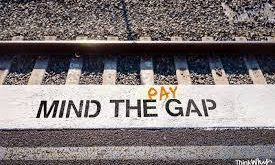Read More »
Οι «τρεις εποχές του πανεπιστημίου» και η πάλη ενάντια στο Επιχειρηματικό Πανεπιστήμιο
Την Παρασκευή (21/5/2021, 18¨00, κάτω Πολυτεχνείο) η νεολαία Κομμουνιστική Απελευθέρωση διοργανώνει εκδήλωση με θέμα «Το σύγχρονο πανεπιστήμιο στην υπηρεσία του κεφαλαίου – Η μάχη για την παιδεία των αναγκών μας», στην οποία θα συμμετάσχω σαν ομιλητής Η άποψη μου για το Επιχειρηματικό Πανεπιστήμιο είναι διατυπωμένη σε αρκετές δημοσιεύσεις όπως οι ακόλουθες (με τους διαθέσιμους διαδικτυακούς συνδέσμους): Μαυρουδέας Στ. (2005), «Οι τρεις εποχές του πανεπιστημίου – Το πανεπιστήμιο...
Read More »A little taxonomy of inflation – there is no thing like ‘the’ price level
Technical addendum: ‘Individual consumption expenditure of general government’ equals spending on health care and education and the like. Collective expenditure equals the proverbial streetlamps. NPISH stands for Non Profit Institutions Serving Households like churches, unions and soccer clubs. At this moment there is quite some talk about the specter of inflation. And indeed: some prices are increasing. Houses! The runaway increase of house prices sure is a specter to be bothered...
Read More »The gender wage gap
from Lars Syll Uber has conducted a study of internal pay differentials between men and women, which they describe as “gender blind” … The study found a 7% pay gap in favor of men. They present their findings as proof that there are issues unrelated to gender that impact driver pay. They quantify the reasons for the gap as follows: Where: 20% is due to where people choose to drive (routes/neighborhoods). Experience: 30% is due to experience … Speed: 50% was due to speed, they claim that...
Read More »Open thread May 14, 2021
My comprehensive plan for US policy on the Middle East …
… is set out over the fold. I’m confident readers who take a little time to think about it will realise it’s far superior to existing policy, and to any alternative proposed so far. (Previously posted at Crooked Timber in 2011) Share this:Like this:Like Loading...
Read More »Open thread May 11, 2021
Weekly Indicators for May 3 – 7 at Seeking Alpha
by New Deal democrat Weekly Indicators for May 3 – 7 at Seeking Alpha My Weekly Indicators post is up at Seeking Alpha. YoY comparisons remain ridiculous, so seasonally adjusted data, plus comparisons with 2019 where available are more informative. That being said, all of the coincident and short leading indicators point towards continued strong expansion. The longer leading forecast is much murkier, partly because of some sharp...
Read More »The long leading indicator of credit conditions has just been updated by the Fed
by New Deal democrat The long leading indicator of credit conditions has just been updated by the Fed The easing or tightening of credit conditions has a good track record as a long leading indicator, giving us information about whether the economy will be expanding or contracting in 12+ months. The Fed just updated its Senior Loan Officer Survey for Q1, which covers both the easing or tightening of credit supply on the one hand, and...
Read More »Open thread May 7, 2021
Tags: open thread
Read More » Heterodox
Heterodox



